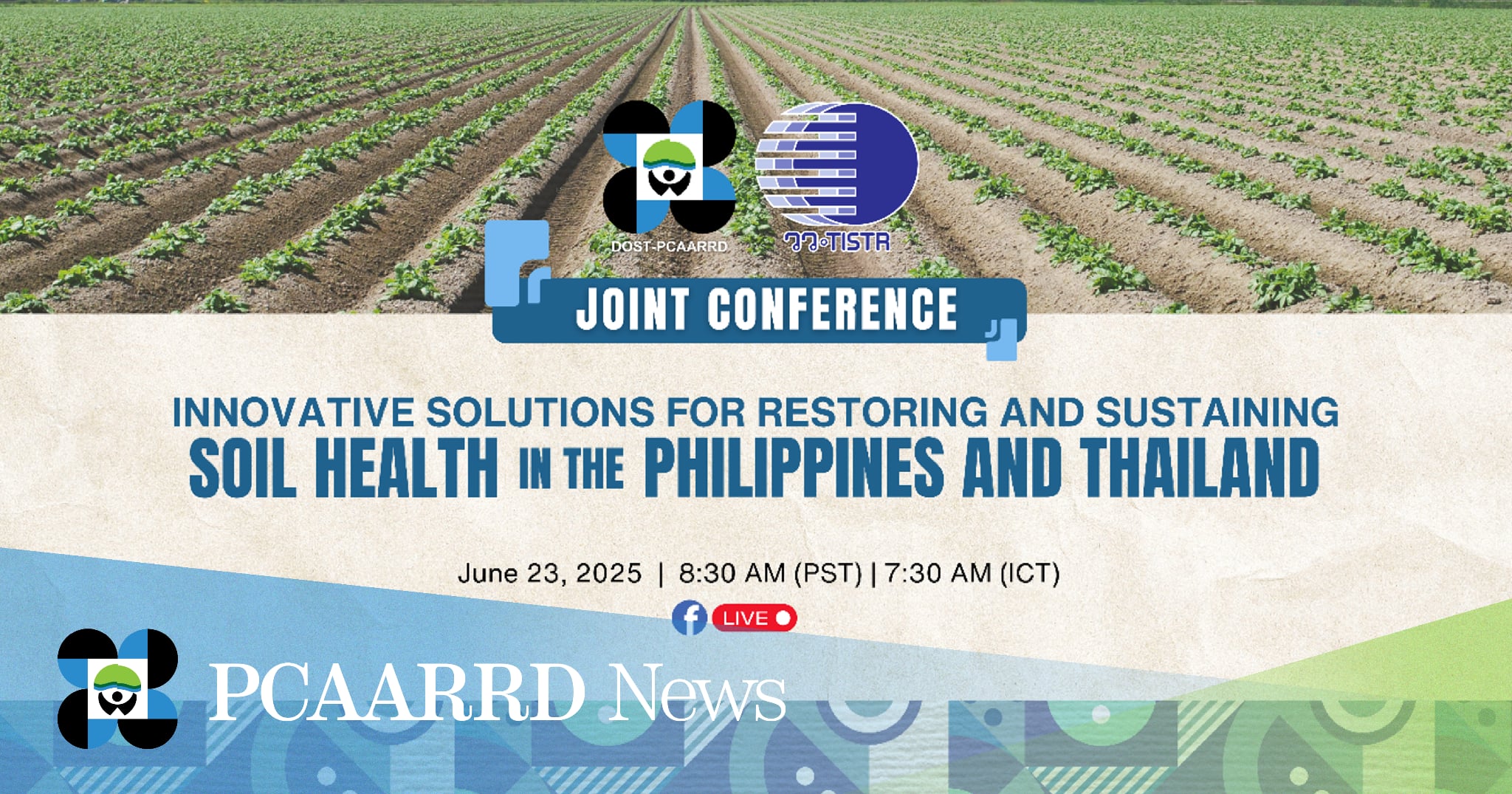In a time when the pressures of climate change, food insecurity, and environmental degradation are intensifying across the globe, two neighboring countries are taking a proactive step toward protecting one of their most essential natural resources—soil.
As part of the DOST-PCAARRD’s 14th Anniversary celebration, the Department of Science and Technology – Philippine Council for Agriculture, Aquatic and Natural Resources Research and Development (DOST-PCAARRD) and the Thailand Institute of Scientific and Technological Research (TISTR) will jointly host a Conference on Innovative Solutions for Restoring and Sustaining Soil Health in the Philippines and Thailand on June 23, 2025. The event will take place at the Acacia Hotel in Alabang, Muntinlupa City, bringing together government officials, scientists, technical experts, and stakeholders from both countries.
The conference will be livestreamed via DOST-PCAARRD’s official Facebook page, allowing a broader public, from researchers and students to farmers and policymakers, to take part virtually in this timely discussion.
A Shared Concern, a Shared Agenda
The importance of healthy soil extends far beyond agriculture. Soil underpins food systems, stores carbon, supports biodiversity, and provides vital ecosystem services. Yet today, soil degradation threatens nearly a third of the world’s land area, with Asia among the most affected regions. In response, the Philippines and Thailand are ramping up their collaboration on sustainable land and soil management through science, policy, and innovation.
The conference will open with messages from key government officials and a keynote presentation that frames soil health within broader environmental goals, emphasizing regional cooperation and long-term sustainability.
Three Thematic Sessions, One Unified Goal: Healthy Soil for All
Structured into three main thematic sessions, the conference aims to provide a comprehensive view of soil management strategies at the technical, technological, and policy levels.
Session 1: Soil Health in the Philippines and Thailand
This session will assess the current state of soil resources, identify major threats such as soil erosion, nutrient depletion, and acidification, and highlight ongoing efforts to improve land quality through research and sustainable farming practices.
Session 2: Innovations in Sustainable Soil Management
Technological solutions, such as biofertilizers, organic amendments, microbial inputs, and digital soil monitoring tools, will be at the heart of this session. Presenters from both countries will share case studies and pilot initiatives that demonstrate practical, scalable innovations for improving soil productivity and sustainability.
Session 3: Mainstreaming Soil Health in National Development Policies
This final session will focus on integrating soil health into government planning, agricultural investment programs, and climate adaptation strategies. It will emphasize the importance of evidence-based policymaking, cross-sectoral coordination, and multi-level governance to promote long-term land stewardship.
Each session will include an open forum to encourage interaction, reflections, and knowledge sharing among participants.
Deepening Bilateral Cooperation
A key highlight of the conference will be the signing of the Workplan of Cooperation between DOST-PCAARRD and TISTR, reaffirming both countries’ commitment to joint initiatives in soil research, technological innovation, and capacity building.
Additionally, the event serves as a venue for institutional matchmaking, encouraging collaborations between government agencies, research institutions, local governments, and universities. A Welcome Dinner and Cultural Networking Night will cap the day, providing an informal space to foster camaraderie and celebrate the cultural heritage of both countries.
Investing in Soil is Investing in the Future
By restoring and sustaining soil health, countries invest not just in agriculture, but in economic security, climate resilience, and the well-being of future generations. This joint conference affirms the power of international partnerships in addressing complex challenges that transcend borders.
The collaboration between the Philippines and Thailand demonstrates how shared knowledge, co-developed technologies, and a strong spirit of cooperation can lead to lasting solutions for both people and the planet.
As the two countries deepen their cooperation, this conference lays the groundwork for a future rooted in sustainable, science-driven land management.

